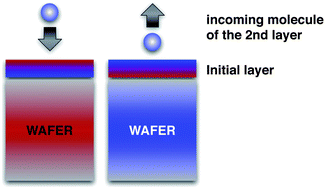Slow and remanent electric polarization of adsorbed BSA layer evidenced by neutron reflection
Abstract
Using

Maintenance work is planned on Thursday 2nd October 2025 from 09:00 to 10:00 BST.
During this time the performance of our website may be affected - searches may run slowly, some pages may be temporarily unavailable, and you may be unable to log in or to access content. If this happens, please try refreshing your web browser or try waiting two to three minutes before trying again.
We apologise for any inconvenience caused and thank you for your patience.
* Corresponding authors
a Laboratoire Léon Brillouin, CEA/CNRS UMR 12, CEA-Saclay, Gif-sur-Yvette cedex, France
b Service de Physique de l'Etat Condensé, CEA Saclay, Gif-sur-Yvette cedex, France
Using

 Please wait while we load your content...
Something went wrong. Try again?
Please wait while we load your content...
Something went wrong. Try again?
A. Koutsioubas, D. Lairez, G. Zalczer and F. Cousin, Soft Matter, 2012, 8, 2638 DOI: 10.1039/C2SM07265C
To request permission to reproduce material from this article, please go to the Copyright Clearance Center request page.
If you are an author contributing to an RSC publication, you do not need to request permission provided correct acknowledgement is given.
If you are the author of this article, you do not need to request permission to reproduce figures and diagrams provided correct acknowledgement is given. If you want to reproduce the whole article in a third-party publication (excluding your thesis/dissertation for which permission is not required) please go to the Copyright Clearance Center request page.
Read more about how to correctly acknowledge RSC content.
 Fetching data from CrossRef.
Fetching data from CrossRef.
This may take some time to load.
Loading related content
